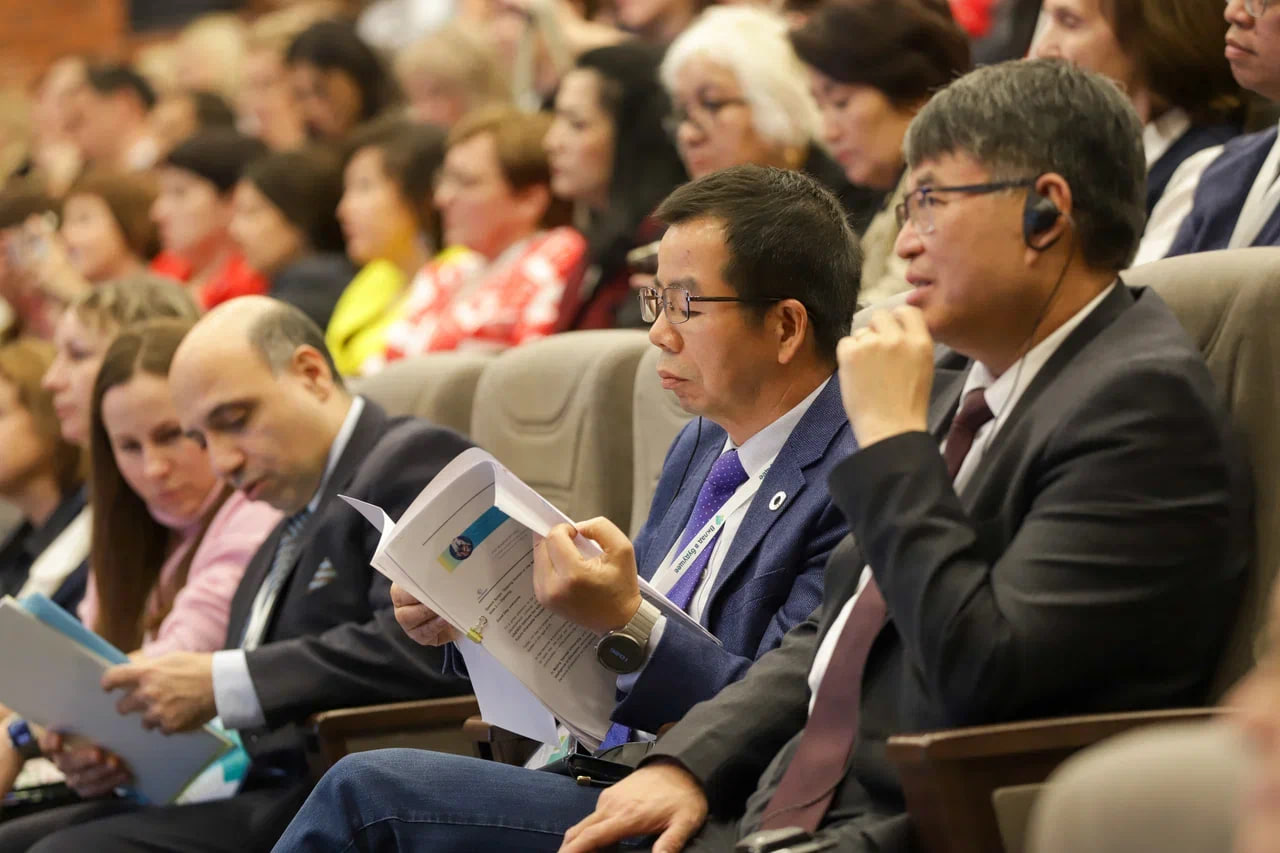
On October 29, Immanuel Kant Baltic Federal University (IKBFU) hosted the 4th Gathering of Centers for the Development of Personal Potential and it’s ambassadors. This annual large-scale interregional event unites educators and educational institutions participating in the Developing Environment program of the Contribution to the Future Charitable Foundation. The key theme of this year was the creation of a developing educational environment in the era of artificial intelligence.
| Rector of IKBFU, Maxim Demin, welcomed the participants: |
| IKBFU has been part of the consortium Development of Personal Potential in Education for over three years. Within this framework, we are implementing a specialized higher education research program titled Development of Personal Potential in Education: Personalization and Digitalization. The first graduation was in 2025, and currently 22 master’s students are enrolled in the program. I would like to note that IKBFU is one of six universities in Russia participating in a pilot project on the transformation of higher education, and all our pedagogical programs are involved in this experiment. This allows us to flexibly approach the content of educational programs, expand our partnerships, and experiment with pedagogical practices. |
Pyotr Polozhevets, Executive Director of the Contribution to the Future Foundation, expressed gratitude to IKBFU for it’s hospitality and emphasized the symbolism of holding an event devoted to the development of human potential at a federal university — one of the country’s leaders in higher education.
| In recent years, growing attention has been given to the priority of human development and well-being. Today, we face a new context — how to remain human in the age of AI. According to experts, the opportunities provided by AI will bring about profound changes in people’s lives. These transformations will affect both the educational process and its participants. We invite all participants to rethink our approaches to personality development in education through the lens of the triad “Human. Machine. Environment”, |
| noted Pyotr Polozhevets. |
Participants were also welcomed by representatives from China — Tao Zhan, Director of the UNESCO Institute for Information Technologies in Education, and Huang Ronghuai, Co-Dean of the Institute of Smart Education at Beijing Normal University, Head of the UNESCO Chair on AI in Education, and Director of the National Engineering Research Center for Cyberlearning and Intelligent Technology.
For reference:
IKBFU implements, within the consortium, a specialized higher education research program Development of Personal Potential in Education: Personalization and Digitalization. The mission of the program is to train qualified, competitive specialists capable of addressing key professional challenges related to the development of personal potential among participants of the educational process in a modern, personalized, and digitalized educational environment. Graduates are expected to be able to make conscious choices, navigate information flows effectively, and reflect on their personal and professional growth.
To achieve this, the new educational model requires teachers equipped with relevant knowledge, competencies, and modern methods and technologies for developing personal potential. For the consortium’s academic community and master’s students of the program, leading researchers conduct a series of methodological seminars devoted to approaches, principles, and tools for developing personal potential. One of the program’s unique features is a “mobile semester,” allowing students to study relevant disciplines at consortium partner institutions.
The 4th Gathering brought together over 350 educators, education leaders, and experts from 32 Russian regions. Among the attending Centers for Personal Potential Development (CPPD): 82 schools and educational complexes, 41 preschools, 4 regional institutes of education development, and 8 regional institutions represented by program curators and ambassadors. Two pedagogical colleges also took part. The first day of the event welcomed over 100 local educators and administrators from Kaliningrad schools and preschools, representatives of the Kaliningrad Regional Institute for Education Development, and IKBFU faculty.
An international delegation of 31 experts from five post-Soviet countries — Kyrgyzstan, Kazakhstan, Uzbekistan, Turkmenistan, and Belarus — also participated. For the first time, the gathering included experts from Beijing Normal University, representing the People’s Republic of China.
In 2019, the Kaliningrad Region became the first in Russia to join the Personal Potential Development Program(since 2023 known as the Developing Environment Program), created and implemented by the Contribution to the Future Foundation in cooperation with the Moscow City University of Education.
Over five years of collaboration — formalized through agreements between the Kaliningrad Ministry of Education, the Foundation, and later the Kaliningrad Regional Institute for Education Development — the region has demonstrated impressive results. A total of 980 educators and administrators from 49 schools, 21 preschools, and 3 supplementary education institutions have completed training based on the program. The Pedagogical College of Chernyakhovsk is among the participants. Currently, 19 educational institutions in the region have the status of Centers for Personal Potential Development — 13 schools, 5 preschools, and the Pedagogical College of Chernyakhovsk.
User profile for student
User profile for student
I give consent to the processing of the personal data provided, with Personal Data Processing Policy acquainted
Confirm consent